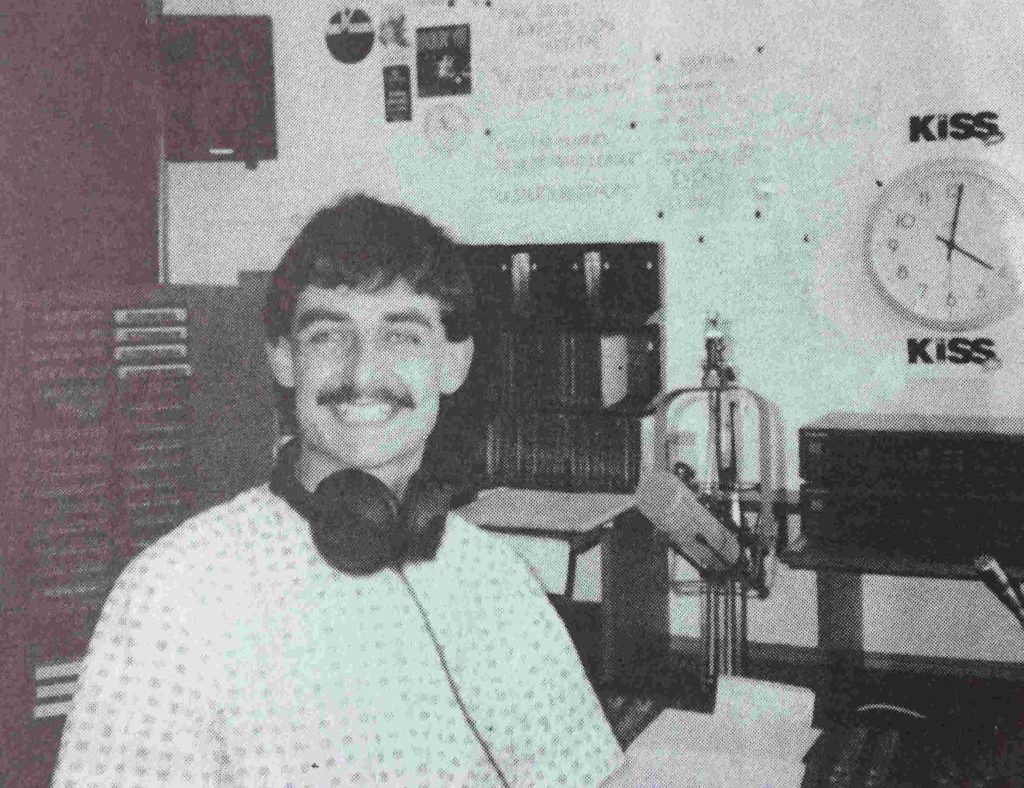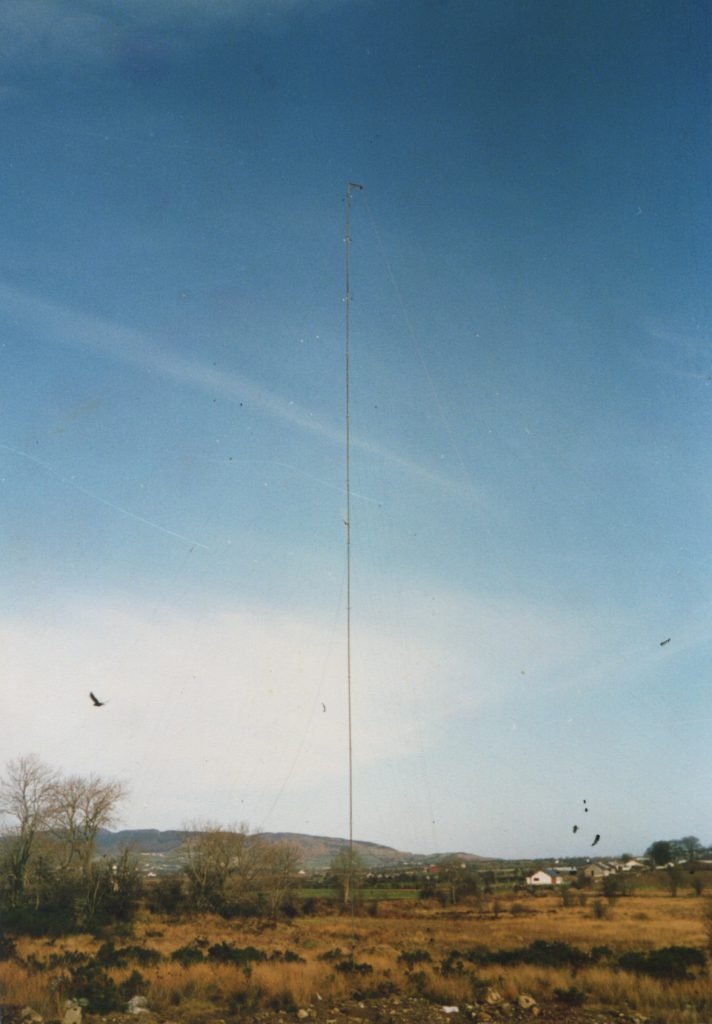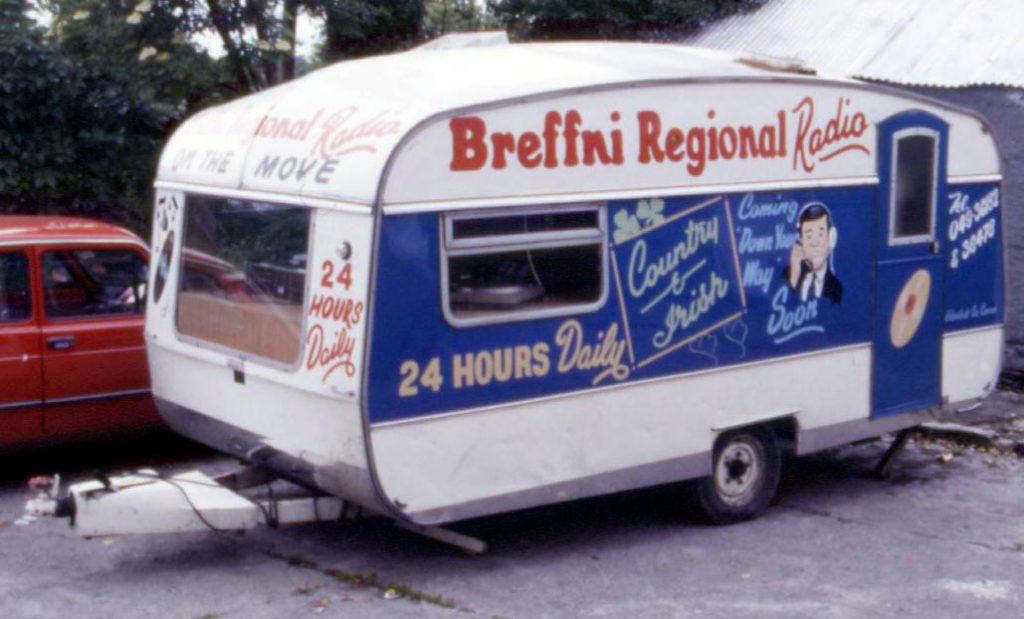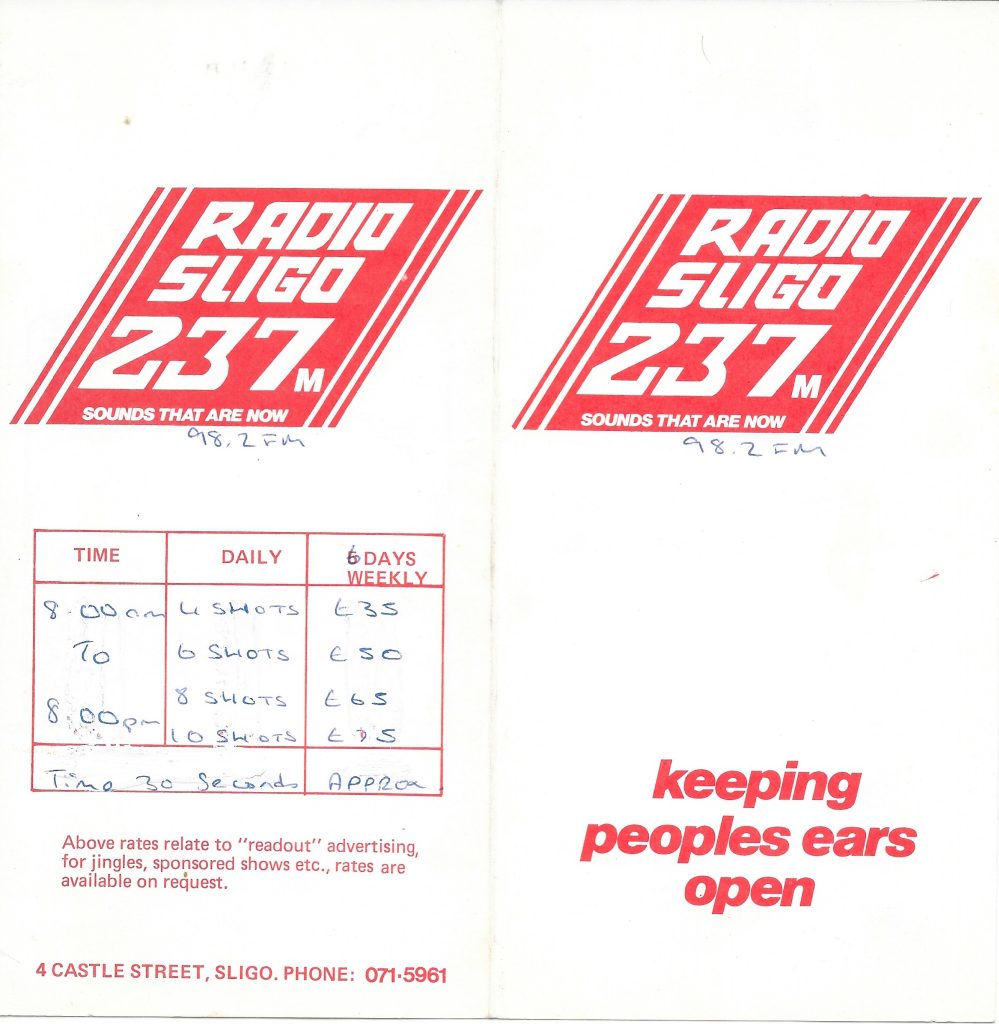Podcast: Play in new window | Download

KISS FM from Monaghan Town was a short-lived but highly successful and professional pirate station that broadcast for only 9 months in 1988. Although many border pirates relied on Northern listeners and advertisers, few were professional or powerful enough to make inroads into Belfast. Work began in 1987 on establishing a professional commercial station whose signal would be viable to capture the Belfast market. Test transmissions began at the end of that year and after technical problems, KISS FM eventually launched officially on 27th March 1988 and began broadcasting full-time a few days later. Powerful signals on AM and FM reached to Belfast and beyond, making KISS FM a serious player in the Northern radio market during its short time on air.
This recording is of various evening shows from a Wednesday not long after KISS FM went on the air. First up is the end of the long afternoon shift with Owen Barry (Larkin), who is followed by John Friday (Lawrence John). Formatting is slick, with minimal talk, music sweeps and station jingles and liners. There’s also a promo for the US syndicated radio show, Gary Owens Music Weekend, and a small number of adverts for larger businesses and brands.
The recording was made from 103.7 between 1840-1928 on 6th April 1988 and is from the Anoraks Ireland Collection. KISS FM also broadcast on 1008 kHz AM at this time.




